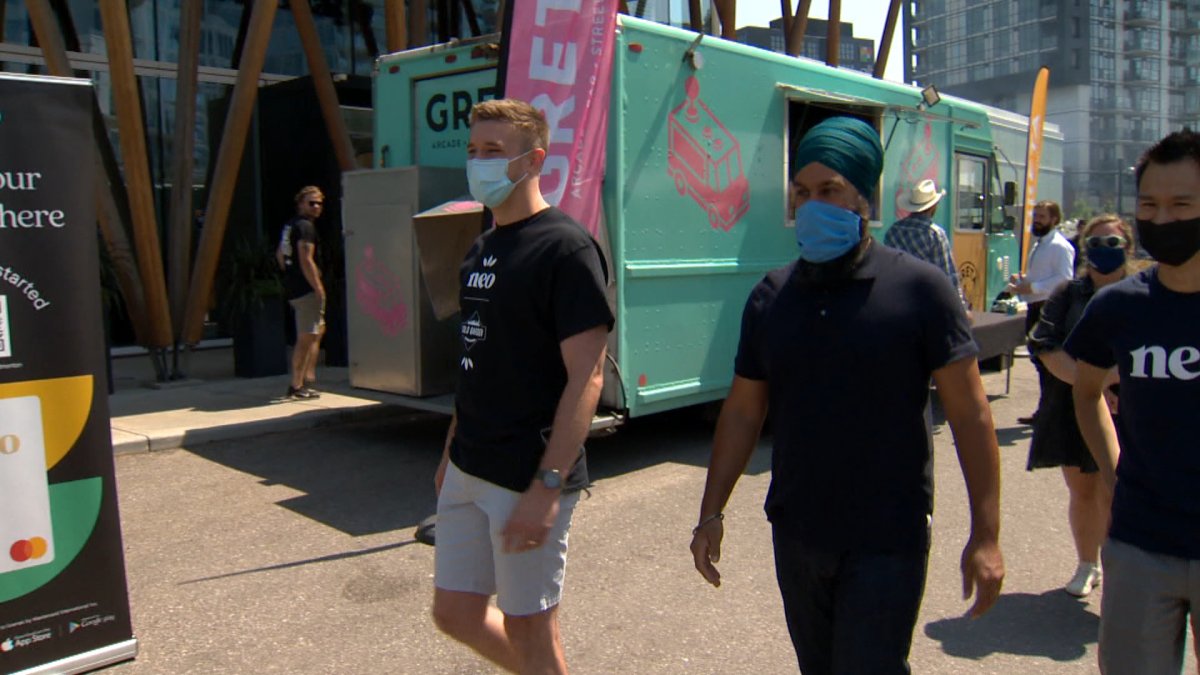Federal election campaigns can be unpredictable, as we have seen over the last several weeks. But one thing (almost) always remains true: Albertans vote Conservative.

Ipsos polling suggests history will repeat in the 2021 federal election, but there are plenty of reasons to believe this campaign could be an early sign of what is to come in Alberta. And that has everything to do with the NDP’s ascent in the province and across Canada.
This federal election matters more for Alberta in terms of what it will mean for provincial politics going forward, and less about what it will mean for how many Conservative MPs the province will send to Ottawa this time around (hint: a lot).
Most ridings will reliably vote Conservative, but that is because the main objective for Alberta voters in this election is simple: vote the Liberals (and Prime Minister Justin Trudeau) out of office.
There is no love lost in Alberta for the Liberals or Trudeau, despite the Liberals winning four seats in Alberta in 2015.
They lost them all in 2019. Residual anger with the National Energy Plan, the Trudeau name and brand, scandals involving Alberta Liberal MPs, and the overall Liberal government’s record in its first term in office — which never seemed to take the west into consideration, let alone favour it — contributed to those losses.
In the years since the Liberals were first elected in 2015, the Trans Mountain pipeline and a lack of support for the oil and natural gas sector, in general, grew as irritants for Albertans, who felt Trudeau abandoned his early promises to support their sector, despite eventually buying the pipeline.
The desire to vote the Liberals out of office became very strong, often overriding other considerations.

Conservative Leader Erin O’Toole seems to be fending off challenges to his right as well. Fringe right-wing parties such as the Maverick Party and the People’s Party are attracting scant attention, and even fewer votes.
Even in Alberta, where these parties seem most at home, their ability to pull enough votes from the Conservatives is not likely to be enough to cost the Conservatives seats.
There has also been lots of talk of the “Kenney effect” on the federal election, and whether the Liberals would use the United Conservative Party (UCP) Premier Jason Kenney as a foil to campaign against the Conservatives.
So far, that effect has been no effect at all. It’s not that Kenney has been helping his federal counterparts; he’s been visibly invisible during the campaign.
- Peel police chief met Sri Lankan officer a court says ‘participated’ in torture
- Budget 2024 failed to spark ‘political reboot’ for Liberals, polling suggests
- Wrong remains sent to ‘exhausted’ Canadian family after death on Cuba vacation
- Liberals having ‘very good’ budget talks with NDP, says Freeland
Kenney’s approval rating on handling the pandemic is currently the lowest among all the premiers. COVID-19 is surging in Alberta. Kenney is facing criticism for his management of the pandemic, his own overall record, and for being absent from Alberta during a fourth wave of COVID-19.
Meanwhile, the NDP has been on the rise since its surprise 2015 victory in Alberta, and it is no longer scary to vote NDP in Alberta.
Before the federal campaign started, in fact, the federal NDP was within six points of the Conservatives, before dropping back to a statistical tie with the Liberals. But the NDP numbers are improving nationally. NDP Leader Jagmeet Singh also enjoys high personal approval ratings across the country, including in Alberta.
Provincially, the NDP, and its leader Rachel Notley, lead the UCP and Jason Kenney.
Although the next Alberta provincial election is two years away, what happens in the federal election on Sept. 20 will influence what happens in Alberta over the course of those two years.
If O’Toole prevails and Kenney loses his bogeyman Trudeau in Ottawa, Albertans may become even more comfortable electing a provincial NDP government.
Alberta is rapidly becoming a true two-party province, and despite assumptions to the contrary, the province has more than its fair share of progressives, especially in urban ridings. However, those two parties are the NDP and the Conservatives, with the Liberals left out.
Vote switching typically occurs between Liberals and Conservatives, or New Democrats and Liberals. In Alberta, the Liberal brand is the third rail. NDP voters will jump to the Conservatives before going to the Liberals, and vice versa.
The Liberal brand is tarnished federally, and non-existent provincially. Whether Alberta becomes a two-party province federally of NDP and Conservative voters in the future remains to be seen.

Things are slowly changing in Canada’s fourth-largest province. Those changes may not show up in a seat count in this election, but the NDP has a real chance to become Alberta’s natural alternative to conservative parties, both federally and provincially.
They may pick up some extra votes in the federal election; they will likely hold their one seat and perhaps threaten a few others. The Liberals seem certain to be wiped out in Alberta again.
If the NDP continues to gain support, and the progressive vote coalesces around the party, it could mean trouble for Kenney, no matter how many seats the Conservatives take in 2021.
The Conservatives should win the most Alberta seats on Sept. 20, but the real story is the significance of the federal campaign on Alberta’s next provincial election.
Gregory Jack is vice president of Ipsos Public Affairs




Comments